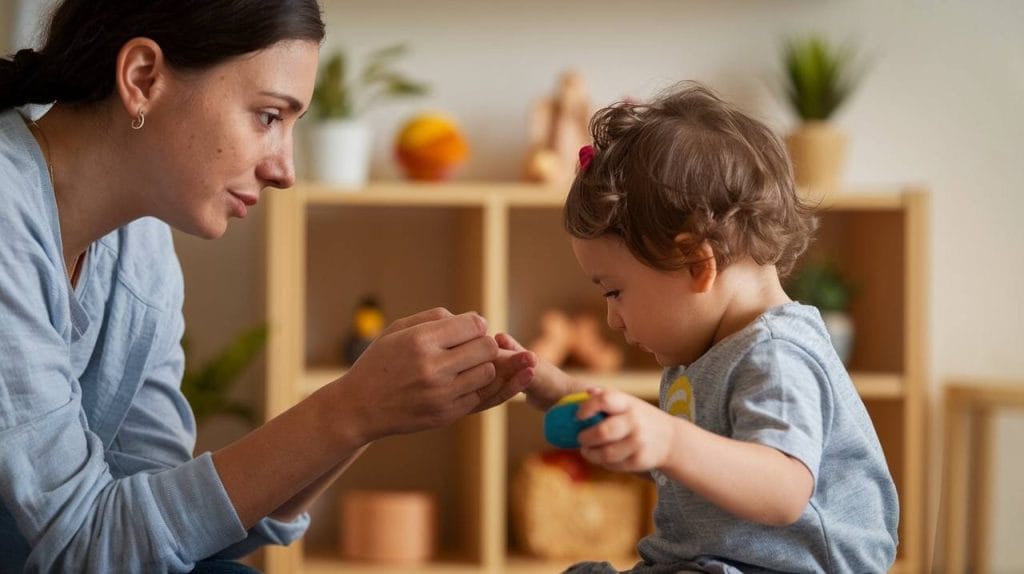Parenting today often feels like a race against the clock, filled with endless distractions. Between helping with homework and making dinner, it’s easy to lose sight of meaningful communication with your child. Mindful parenting techniques can help you stay present, reduce stress, and build stronger connections with your child. By fostering emotional resilience and learning how to improve communication, mindful parenting creates a more peaceful and supportive environment. Through these practices, both parents and children benefit from deeper bonds and healthier emotional development.

What is Mindful Parenting?
Mindful parenting means being present with your child without distractions, judgments, or preconceptions. It invites parents to fully engage in their relationship with their child while being aware of their thoughts, emotions, and reactions with compassion and understanding. The approach is not about being a “perfect” parent but about cultivating an environment of emotional openness, emotional resilience, and understanding.
Key Principles of Mindful Parenting
- Awareness of the Present: Focus entirely on your child’s actions, words, and emotional needs.
- Non-judgmental Acceptance: Accept your child’s behavior without immediate critique, even when it’s challenging.
- Emotional Regulation: Manage your emotional reactions to cope with situations calmly.
- Active Listening: Give full attention during conversations, showing empathy and validating feelings.
Why Mindful Parenting is Important?
The benefits of mindful parenting extend to emotional well-being and deeper connections with your child. The practice:
- Improves Communication: Listening helps children feel understood, fostering trust.
- Reduces Stress: Mindfulness helps parents manage stress levels and respond thoughtfully to challenging situations.
- Enhances Emotional Intelligence: Parents model emotional regulation, helping children develop better self-control.
- Builds Resilience: It allows children to learn how to shift emotionally when faced with difficulties.
Key Mindful Parenting Techniques
You don’t have to make fundamental changes in your parenting style to practice mindful parenting. Small, intentional changes can make a big difference in your relationship with your child. Here are some simple practices to help you get started:
1. Spend Quality Undistracted Time Together
Distractions abound in our technology-driven age. Mindful parenting encourages dedicated time without distractions. This could be as simple as:
- Having dinner without phones to share what happened throughout the day.
- Taking a walk outdoors and discussing feelings or recent events.
- Engaging in fun activities like games or creative projects together.
This undivided attention conveys to your child that they are loved and valued.

2. Practice Active Listening
When your child speaks, are you truly listening, or are you busy formulating your response? Active listening is crucial to mindful parenting. It means being fully present in conversations and allowing your child to express themselves without interruptions or assumptions.
Key elements of active listening include:
- Eye Contact: Maintain eye contact to show your focus.
- Empathy: Reflect on your child’s words to show understanding.
- Non-verbal Cues: Use nods or smiles to indicate your involvement in the conversation.

3. Respond, Don’t React
In heated moments, your instinct might be to react impulsively with frustration or anger. Mindful parenting teaches you to pause and reflect before responding. For example, if your child throws a tantrum, take deep breaths, acknowledge their feelings, and address the behavior calmly. This helps de-escalate the situation and encourages emotional understanding.

4. Teach Your Child to Practice Mindfulness
Children are naturally curious and open to learning. Introducing mindfulness techniques empowers them to manage their emotions and improves concentration. Some simple methods to teach mindfulness include:
- Breathing Exercises: Guide them through deep breathing techniques to help them calm down when overwhelmed.
- Somatization: Ask them to lie down and focus on different body parts, noting tension or relaxation.
- Gratitude Practices: Encourage daily reflection on things they are grateful for.
These practices help children develop valuable self-awareness and emotional control.
5. Practice Self-Compassion
It’s easy to be hard on yourself when things don’t go perfectly. Remember that parenting is tough. Practicing self-compassion means acknowledging that you are doing your best and that mistakes are part of the process. Treating yourself kindly increases the likelihood of extending the same compassion to your child, creating a supportive environment for both of you.

Mindful Parenting: How It Influences Child Development
Mindful parenting not only improves the parent-child relationship but also has long-lasting effects on a child’s development. Children who grow up in mindful families are more likely to exhibit:
- Better Emotion Regulation: They learn to manage their emotions constructively by observing their parents’ mindful behavior.
- Higher Self-esteem: Growing up in a caring environment fosters a positive self-perception.
- Better Academic Performance: Improved concentration and focus translate into better studying abilities.
Conclusion: Inculcating Mindfulness while Parenting
Mindful parenting equips you with the tools to instill a strong and healthy emotional and psychological foundation in your child. By being present, actively listening, and responding thoughtfully, you can cultivate a more positive relationship with your child and foster harmony within your family unit.
Take the time to implement these techniques into your daily routine; the time you invest will be well worth the effort. Remember, mindful parenting is a process. Start with small changes, be consistent, and most importantly, be gentle with yourself along the way. Your child will thank you for it.
With these mindful parenting techniques, you will strengthen your relationship with your child and create a loving, peaceful atmosphere within your family.
